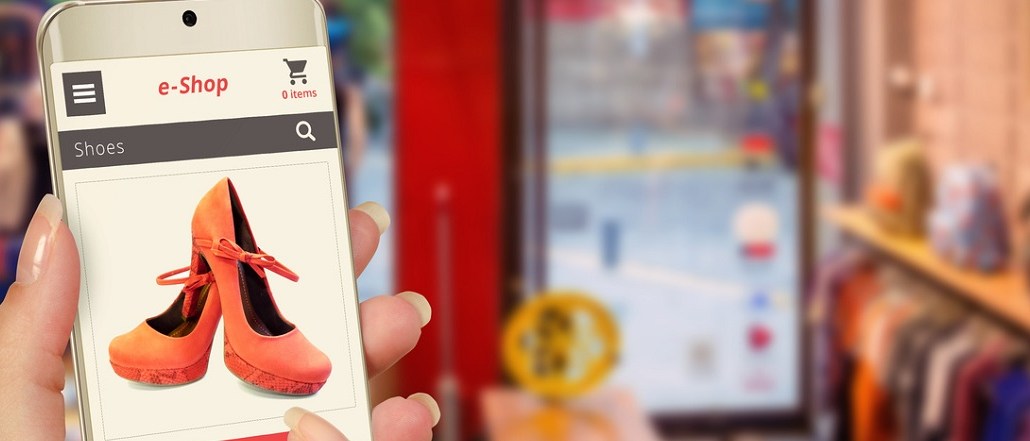Secure your place at the Digiday Publishing Summit in Vail, March 23-25

The tech scene is known for its unfashionable choices. But now the fashion crowd is on its way in: Today, corporations fund more than a quarter of early-stage startups in the EU. And fashion retailers want in on the incubation game.
Big brands have been setting up their own in-house bootcamps — aka incubators or accelerators — to rub shoulders with entrepreneurs in retail. John Lewis started its own JLab program in 2013, but this year others including Topshop, Asos and SimplyBe-owner N Brown Group all followed suit.
They’ve given money into ideas ranging from heated clothing to an Instagram shopping tool.
“Fashion-tech has been hot in the last three years,” explained Tom Montgomery, managing partner at retail investment firm Allegro Capital. “So retail companies are now adopting some of the fairly well-trod paths to innovation.”
Brands, and their venture capital partners, pitch their incubators as a mutually beneficial relationship. Sometimes there’s equity involved, sometimes not, but there’s always a promise that startups will get lucrative advice and access to decision-makers. Meanwhile, retailers get access to new (and cheap) technology while it’s in its infancy, ahead of their rivals.
For retailers, the most immediate benefit of launching an accelerator is the free publicity. John Lewis’ JLab has been featured in the Guardian, FT and The Telegraph, while the Topshop and Asos schemes got coverage in TechCrunch and Business Insider respectively.
“It is getting them into press and showing they are head of the curve,” said PR expert Amanda Ruiz. “It is showing they are being a forward-thinking organization, not just some money grabbing so-and-sos.”
The free PR is also a boon for startups, which are unlikely to have the budget or staff to market themselves effectively. Imogen Wethered is the CEO and co-founder of Qudini, which lets retail customers queue on an app rather than in-person, and part of JLab’s 2015 cohort. According to her, the association with a large retailer like John Lewis was crucial in adding credibility to her brand. “For the startups, you get free PR which is amazing. Our business wouldn’t be where it is without that,” she said.
But for retailers, the easy part is giving away prize money; the hard part is building something with staying power. According to Gary Stewart, director of the London-based accelerator Wayra U.K., in some cases, the low-hanging PR fruit is all retailers really want. Wayra was started by Spanish telecom Telefonica but now runs cohorts with outside companies including Asos.
Stewart said that while more brands want to invest in startups, many still don’t know exactly why. This is a phenomenon he called “startup tourism.” In Wayra’s current scheme with Asos, all three startups — artificial intelligence firm action.ai, missed delivery service Xpreso and e-gifting platform Wishround — are working on active pilots with staff from the retailer. However, only a handful of JLab alumni are working with John Lewis. Meanwhile, Topshop withdrew the opportunity to pitch to Arcadia chairman Sir Philip Green midway through its program.
“If we’re taking a 5 to 10 percent share of your baby, we will bring value. If we can’t, it’s wrong to take equity from your company,” Stewart said.
The real draw for startups is knowing they have a champion inside the brand who can help them learn what the client’s needs are — and make something accordingly. But these programs can risk turning into innovation-shaped distractions for brands.
“They get to the end of the experience and think, ‘That was cool, wasn’t it?’ and go back to their day job,” said Tim Andrew, Localz CEO and co-founder of geo-location app Localz, the winner of JLab 2014. According to him, accelerator schemes are best when they offer a relationship, not just an endorsement. “Ending up with just a handshake and a check doesn’t drive value for a business,” he said. “A 3D printed trophy only lasts so long.”
Besides potential to poach staff for their own projects, there’s also promise to actually bring innovations to the company. Those that succeed are the schemes with support from senior staff and employees who are tied to specific targets, not just a ring-fenced pot of money.
Real prizes comes further down the line. As VC Tom Montgomery explains, seed-stage startups are a long game too, taking up to seven years to determine success or failure.
And, importantly, accelerators are just one part of the puzzle. Mike Tattersall, who sees over 1,000 businesses each year as a partner at TrueStart, said accelerator programs meet the first requirement for brands looking to innovate, but they aren’t enough on their own. Those who are succeeding are approaching innovation from all angles, and at all levels of their business.
“You can never get your arms around innovation,” he said. “What’s important is not to think, ‘I’ve got a global head of innovation with a load of air miles so we’ve got it solved.’”
More in Marketing

‘The conversation has shifted’: The CFO moved upstream. Now agencies have to as well
One interesting side effect of marketing coming under greater scrutiny in the boardroom: CFOs are working more closely with agencies than ever before.

Why one brand reimbursed $10,000 to customers who paid its ‘Trump Tariff Surcharge’ last year
Sexual wellness company Dame is one of the first brands to proactively return money tied to President Donald Trump’s now-invalidated tariffs.

WTF is Meta’s Manus tool?
Meta added a new agentic AI tool to its Ads Manager in February. Buyers have been cautiously probing its potential use cases.








